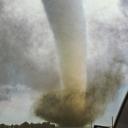Yahoo Clever wird am 4. Mai 2021 (Eastern Time, Zeitzone US-Ostküste) eingestellt. Ab dem 20. April 2021 (Eastern Time) ist die Website von Yahoo Clever nur noch im reinen Lesemodus verfügbar. Andere Yahoo Produkte oder Dienste oder Ihr Yahoo Account sind von diesen Änderungen nicht betroffen. Auf dieser Hilfeseite finden Sie weitere Informationen zur Einstellung von Yahoo Clever und dazu, wie Sie Ihre Daten herunterladen.
Does cold weather make people sick because most of the time i’ve seen people saying that it’s because of co?
Because i don’t feel like that.
6 Antworten
- vor 7 JahrenBeste Antwort
no it's not true..i found an article which gives interesting points about why people think like that...it's the sudden change in weather that plays the point.
- Michel VerheugheLv 7vor 7 Jahren
Many years ago, before airplanes, the Norwegian island of Spitsbergen, near the north pole, was cut out of the world by the ice pack during the winter. A couple of weeks after the last boat had sailed, the inhabitants of Longyearbyen got no more colds or flu, until next spring, when the first ship of the season sailed in.
The rhino and flu viruses are needed to get a cold or the flu. But, as written above, during the winter we live more inside, thus contaminating each other more often. This is why we wrongly call it a "cold" in all languages (refroidissement, in French, forkjølelse, in Norwegian).
Then we have recently discovered this: Those two viruses survive longer when there is a low absolute humidity and that is the case during the winter. The relative humidity changes and can be high or low, winter or summer. But the absolute humidity is the actual amount of water per volume of air. For example, saturated air at zero degrees Celsius can't contain more than 5 grams of water. But at 15 C, it is up to 13 grams.
Very little water vapour in the air seems to increase the survival of those viruses in the air and, thus, make it more contaminating during the winter.
- TQLv 7vor 7 Jahren
Short answer: no.
Cold weather does not make people sick even though most of the time you've seen people saying that it’s because of co.
Longer answer:
Most colds do occur during the fall and winter. This may be related to the opening of schools and the start of cold weather, which prompt people to spend more time indoors and increase the chances that viruses will spread from person to person.
Seasonal changes in relative humidity may also have an affect the occurrence of colds. The most common cold-causing viruses survive better when humidity is low, the colder months of the year. Cold weather also may make the inside lining of your nose drier and more vulnerable to viral infection.
There is no evidence exposure to cold temperatures increases the chances that you will get a cold. There is also no evidence your chances of getting a cold are related to enlarged tonsils or adenoids.
Research suggests allergic diseases affecting the nose or throat and psychological stress may increase your chances of getting infected by cold viruses.
Quelle(n): Bio-meteorologist - vor 7 Jahren
I'm not entirely sure, but I think cold weather doesn't tend to cause disease. People just crowd indoors more often when it is cold, which increases the risk of infection. Though severe hypothermia probably does weaken the immune system, simply being in cold weather should not.
- Wie finden Sie die Antworten? Melden Sie sich an, um über die Antwort abzustimmen.
- vor 7 Jahren
I get sick more in the winter but that is probably because I don't look after myself as well during the cold months. I tend to eat more junk than fruit and veg that's why for me. But then my sister and my mum get ill all year round. It just depends on the person I guess.
- 🌪Lv 6vor 7 Jahren
People get sick more often in colder temperatures because a lot of people stay indoors. When people stay indoors, the rate of infection increases.
Quelle(n): Meteorologist/Storm spotter & chaser






